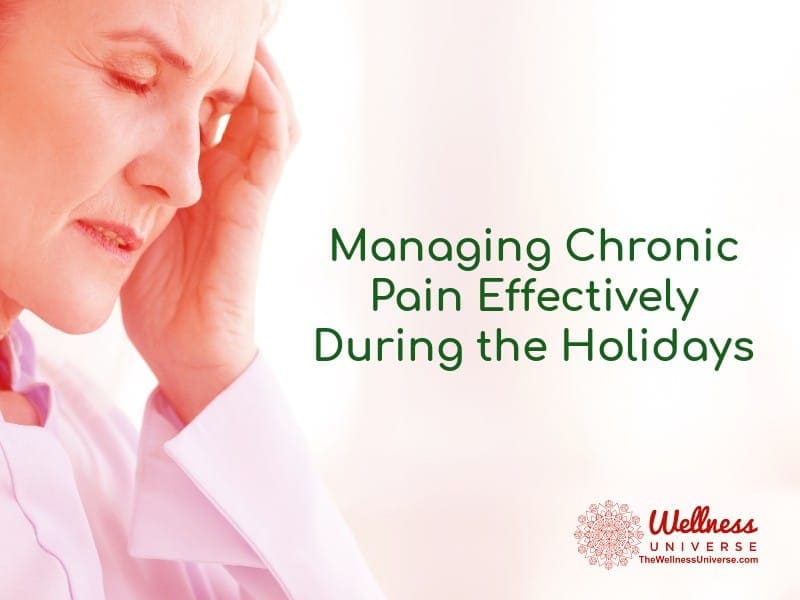Navigating Chronic Pain During the Holidays: A Guide to Self-Care
The holiday season is a time for joy and celebration, but for those managing chronic pain, it can also bring increased challenges. From dealing with stress and disrupted routines to navigating social expectations and emotional triggers, individuals with chronic pain may find it difficult to fully enjoy the festivities. However, with thoughtful planning and a focus on self-care, it is possible to navigate the holiday season while effectively managing chronic pain.
Understanding Chronic Pain
Chronic pain is not just physical discomfort; it encompasses mental, emotional, and spiritual pain that is felt for an extended period. The brain processes all forms of pain in the same way, sending signals of discomfort regardless of the source.
Challenges of Chronic Pain During the Holidays
-
Increased Stress: The holiday season brings added pressure to attend events, prepare meals, and buy gifts, leading to heightened stress levels that can intensify chronic pain.
-
Disrupted Routines: Travel, late-night outings, and indulgent foods can disrupt regular pain management routines, making it harder to control pain levels.
-
Social Expectations: The desire to participate fully in social activities can lead to overexertion and flare-ups, as individuals feel obligated to attend gatherings despite the toll it may take on their well-being.
- Emotional Triggers: Memories of past holiday experiences, feelings of isolation, frustration, or sadness can all be heightened during the holiday season, contributing to increased stress and pain perception.
Strategies for Managing Chronic Pain During the Holidays
-
Prioritize Self-Care: Focus on your well-being over the demands of the season to better control your pain.
-
Set Boundaries: Communicate your needs and limitations to others, and don’t hesitate to say no to activities or events that may worsen your pain.
-
Schedule Downtime: Incorporate periods of rest into your holiday schedule before and after taxing activities to relax and recharge.
- Stay Hydrated: Maintain proper hydration levels to prevent muscle cramps and increased pain sensitivity.
Planning Ahead for Success
-
Plan Your Activities: Prioritize essential tasks and break them down into manageable steps to avoid overexertion.
-
Prepare for Travel: Bring comfort items like pillows and heating pads for long trips, and schedule breaks for stretching and moving.
- Simplify Tasks: Delegate or use delivery services to streamline holiday tasks and reduce physical strain.
Maintaining a Healthy Diet
-
Choose Anti-Inflammatory Foods: Incorporate foods like leafy greens, berries, nuts, and fatty fish to reduce inflammation and pain.
- Limit Sugary and Processed Foods: Enjoy treats in moderation, but limit sugar and processed foods that can worsen inflammation.
Striking a Balance with Physical Activity
-
Incorporate Gentle Exercise: Engage in activities like walking, swimming, or yoga to maintain mobility without overexertion.
-
Stretch Regularly: Prevent stiffness and reduce pain by incorporating gentle stretching into your daily routine.
- Listen to Your Body: Adjust your activity levels based on your body’s signals to prevent flare-ups.
Managing Stress and Emotional Well-Being
-
Practice Mindfulness and Meditation: Use these tools to manage stress and reduce pain perception.
-
Connect with Supportive People: Surround yourself with understanding individuals who respect your needs and limits.
- Engage in Pleasurable Activities: Make time for activities that bring joy and relaxation to improve mood and reduce stress.
Preparing for Social Gatherings
-
Communicate Your Needs: Request accommodations like comfortable seating or quiet spaces to support your well-being.
-
Pace Yourself: Take breaks and leave events early if needed to avoid overexertion and fatigue.
- Focus on Enjoyment: Shift your focus from perfection to enjoyment and prioritize your well-being over external expectations.
By following these strategies and making adjustments to suit your needs, you can navigate the holiday season with chronic pain and emerge feeling empowered and refreshed. Remember, the most important aspect of the holidays is creating meaningful moments of joy and connection that resonate with you.
